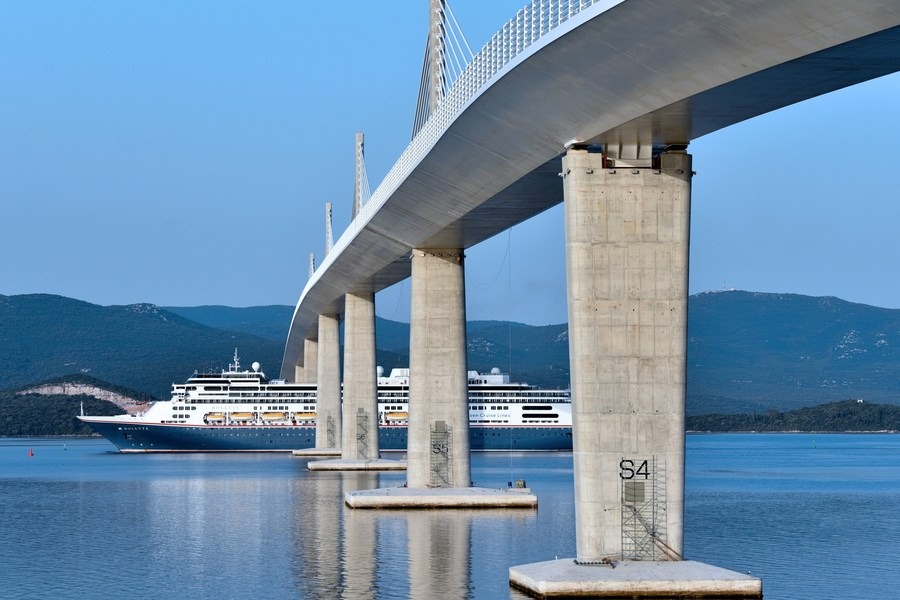Describing the current state of Sino-European ties, former Croatian president Ivo Josipovic said the two sides are building relationships. While admitting that “there are some differences in approach”, especially where the economy was concerned, he added that “there are some new ways to cooperate (on) new possibilities”.
He lauded the role of Chinese companies that built the Peljesac Bridge in his native Croatia “very quickly and with very high quality”, linking the south of Croatia with the rest of the country and serving as a key strategic infrastructure. Speaking highly of the China-proposed Belt and Road Initiative, under which the bridge project was implemented, he said that China, as a major country, is not engaged in wars worldwide, and its peaceful policies have proved more appealing on the global stage.
In an exclusive interview with China Daily, Josipovic highlighted increasing demand from multiple global economies for lower tariffs and more open market, adding that despite current competitions, in the long run, the situation will be much better. According to him, major economies are “opening little by little in spite of some obstacles”.
What has impressed Josipovic the most is the philosophy promoted by the Chinese leadership with regard to the BRI, namely the win-win principle that benefits both parties involved in the project, instead of only one. “We have more and more people from Croatia doing business here in China and of course, Chinese people doing business in Croatia as well, from small private enterprises, restaurants, small shopping malls and so on, to important and big infrastructure projects that we are both engaging in.”
He stressed that the political relationship between the two countries was important too, while speaking about his experience on being invited to the celebrations for the 70th anniversary of the Five Principles of Peaceful Coexistence in June. He described the five principles as very important, especially for small countries.
The principles include mutual respect for territorial integrity and sovereignty, nonaggression and noninterference in each other’s internal affairs, equality and mutual benefit, and peaceful coexistence.
“Croatia, as an independent state, advocates the idea that all countries should be equal,” Josipovic said. “We try to cooperate with all countries regardless of their internal political system. It’s the independent decision of every state, to choose their path to the future.”
He noted that currently mankind faces a dangerous situation because of conflicts worldwide, with the very real risk of a third World War, which he said would be a disaster for humanity.
To prevent the worst case scenario, Josipovic said it was important for all countries to cooperate. “Of course we have differences, but I think we should respect each other and not interfere in internal affairs of any country,” he said. “It’s very important because in spite of our differences, we are one, we are humanity.”
To ensure the best case scenario, Josipovic is in favor of more and more intensive cultural exchanges, which he said can promote bilateral economic relationships, citing his own country as an example. “We have the Confucius Institute now, some people are learning Chinese, and we have our artistes coming to China, such as well-known pianist Maksim Mrvica, and Chinese artistes are also in Croatia,” he said. “I think it’s very important to have cultural exchanges because that way we can understand each other better and that’s the basis for better political and economic relations.”
Having visited China more than 20 times, Josipovic recalled his trips to about a dozen Chinese cities.
“They have different kinds of duties. While Beijing is more connected to history, there are others such as Shanghai, more connected to technology, new techniques and so on,” he said, mentioning the purpose of his trip to China this time, namely to attend the 30th founding anniversary of Beijing Art and Media Vocational College and co-signing an initiative in support of a community with a shared future for mankind.
“Now we have more and more exchanges, economic and political. We do not have any disputes with China,” he said. “We have this very good relationship.”

